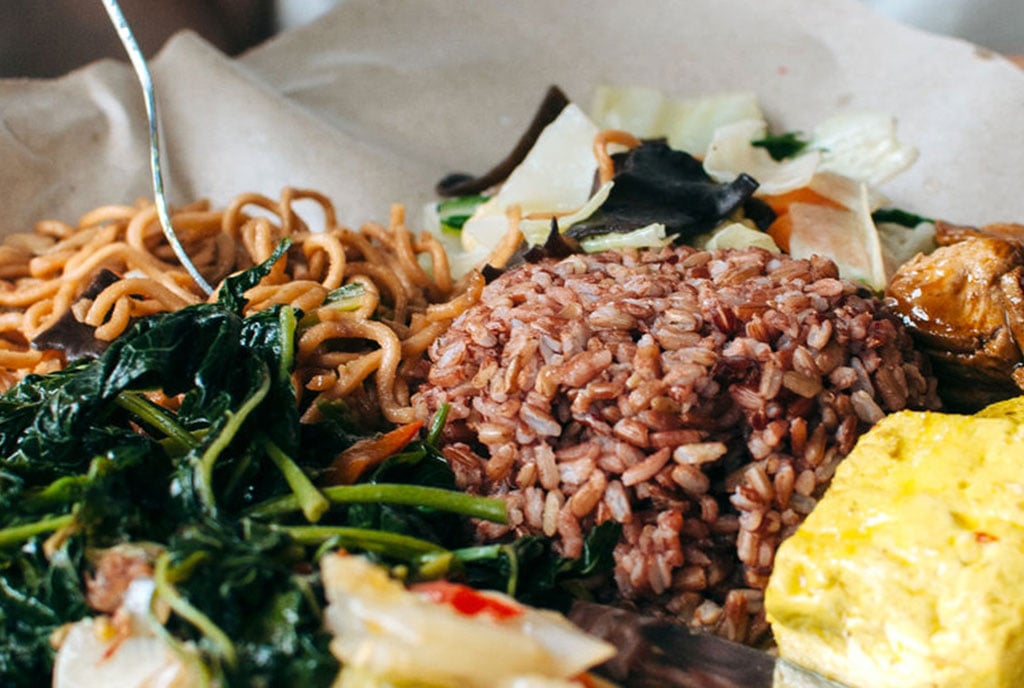How to turn food waste into cash

With the one meal a day diet, you can eat whatever you want provided it fits on a standard dinner plate. PHOTO/COURTESY
What you need to know:
- Mr Ssepuuya emphasised that food waste can be utilised to produce animal and insect feeds because there are many unutilised nutrients in food waste.
Every day people throw away food remains. The leftovers are hard to get rid of and soon become a burden in homes.
However, food waste is a largely unknown and underutilised resource. Much is spent on buying food and what isn’t consumed is merely thrown away.
As the population and urbanisation increase, food waste is bound to grow. This will in turn increase the cost of collecting and disposing of this waste. However, there is a quick solution to food waste that would generate cash returns.
To that effect, a team from Uganda Christian University (UCU) with support from the government, has taken a bold step to addressing the issue of food waste in the Kampala Metropolitan area.
The project is being spearheaded by a team of five people who include Mr Geoffrey Ssepuuya from UCU as principal investigator; Mr Patrick Mulondo from PKM Enterprises; Ms Pamala Akwap from Uganda National Bureau of Standards (UNBS); Ms Jane Alowo from Makerere University and Ms Elsie Nsiyona from UCU.
Speaking during the launch of the project at UCU in Mukono Town last Saturday, Mr Ssepuuya said the project will see the conversion of food waste into chicken and piggery feeds.
He explained that the process involves collecting the food waste, sorting it, decontaminating, dehydrating, milling, packaging and distributing it.
“What we want to do is to establish a small-scale up-cycling facility for food waste such that we will be able to study the production and marketing under real conditions,” Mr Ssepuuya said.
The project will cost $63,700 (about Shs242m) funded by the Uganda National Council of Science and Technology.
Mr Ssepuuya added that the money would be used for looking at knowledge attitudes and practices of sorted food waste collection, establishing a facility to help in the processing of feeds, and doing community sensitisation of waste sorting.
Mr Ssepuuya emphasised that food waste can be utilised to produce animal and insect feeds because there are many unutilised nutrients in food waste.
He added that from their previous project, they established that at least 770 metric tonnes of food waste was produced in Kampala and that households were the largest contributors producing 680 metric tonnes that are disposed of at the landfill.
“We have already made one for chicken farmers. What we are going to do next is to re-evaluate the feeds and focus on piggery so that we can have the feeds for both chicken and pig farmers,” Mr Ssepuuya said.
He noted that the food waste collection will begin in Kampala and will spread to all urban centres and eventually to the entire country.
Mr Vincent Kisenyi, the deputy director of Academic Affairs at UCU, said the university is committed to research and innovation.
He noted that this will not only reduce waste in communities but also create jobs.
“There is job creation because when you look at that chain from collection to production and marketing, you realise many jobs will be created and this will lead to economic growth,” Mr Kisenyi said.
However, he noted that there is a need to have a mindset change, saying people are not used to waste sorting and therefore need more sensitisation if they are to attain their goal.
Available grants
The Grants Manager at Uganda National Council for Science and Technology, Ms Florence Agwang, said the project is an example of a good problem-solving project.
“As researchers, we need to answer all the problems of the private sector. We should try to avoid our research sitting on our shelves. If this project succeeds, it is going to be one of our reference points that it is possible to invest in the private sector,” Ms Agwang said.




